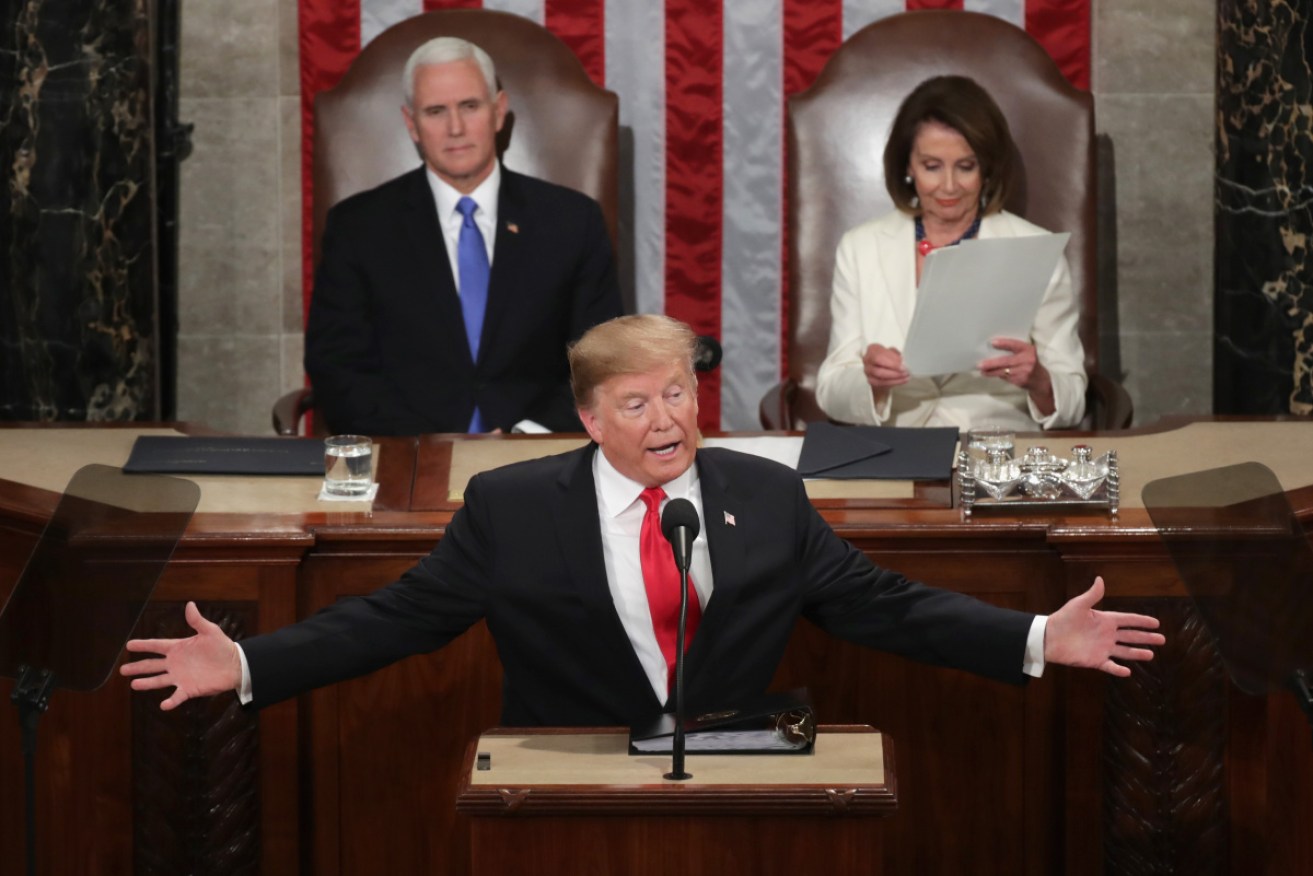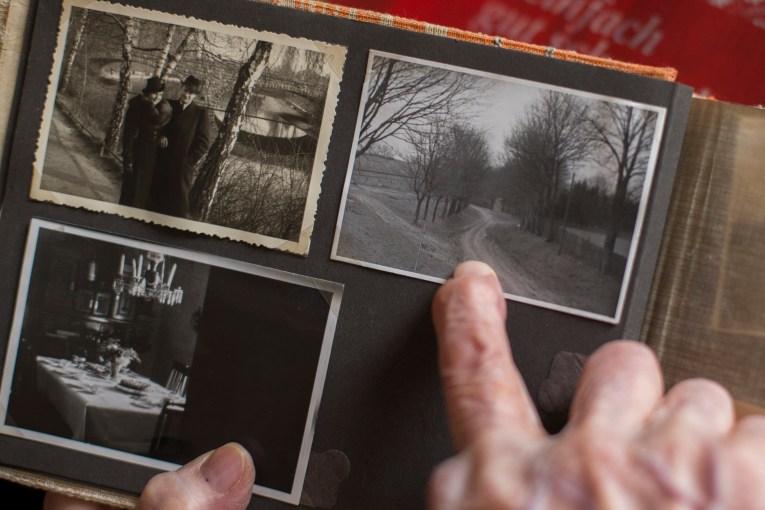State of the Union: Trump claims ‘ridiculous partisan investigation’


Donald Trump addresses Congress, flanked by Mike Pence and Nancy Pelosi. Photo: Getty
In his first State of the Union address to a divided Congress, President Donald Trump has warned Democrats on Tuesday that “ridiculous partisan investigations” could derail the nation’s economic progress.
Mr Trump peppered his speech with calls for bipartisanship, urging Washington to govern “not as two parties, but as one nation”.
But his message clashed with the rancorous atmosphere he has helped cultivate in the nation’s capital, as well as the desire of most Democrats to block his path during his next two years in office.
In a 90-minute speech that ranged across the economy, immigration, abortion and trade with China, Mr Trump almost announced he’d hold another summit with North Korea in February.
The President’s remarks previewed how he planned to defend himself as Democrats launch a flurry of investigations into his administration and personal finances.
“If there is going to be peace and legislation, there cannot be war and investigation,” he declared.
Mr Trump’s speech to politicians and the nation comes at a critical moment in his presidency. He pushed his party into a lengthy government shutdown over border security, only to cave to Democrats.
With another shutdown deadline looming, the President has few options for getting Congress to fund a border wall, and he risks further alienating his party if he tries to circumvent lawmakers by declaring a national emergency instead.
Mr Trump made no mention of an emergency declaration in his remarks, although he offered a lengthy defence of his call for a border wall, declaring, “I will get it built”.
But he delivered no ultimatums about what it would take for him to sign legislation to keep the government open.
“I am asking you to defend our very dangerous southern border out of love and devotion to our fellow citizens and to our country,” he said.
Tweet from @timjhogan
In his speech, Mr Trump gave details of a second meeting with North Korea’s Kim Jong-un, outlining a summit on February 27-28 in Vietnam.
As he stood before politicians, the President was surrounded by symbols of his emboldened political opposition. House Speaker Nancy Pelosi, who was praised by Democrats for her hard-line negotiating during the shutdown, sat behind Mr Trump as he spoke.
Many House Democratic women wore white, like early 20th-century suffragettes. And several senators running for president were also in the audience, including Kamala Harris of California and Cory Booker of New Jersey.
Mr Trump’s address amounted to an opening argument for his re-election campaign. Polls show he has work to do, with his approval rating falling to just 34 per cent after the shutdown, according to a recent survey conducted by The Associated Press-NORC Centre for Public Affairs Research.
One bright spot for the President has been the economy, which has added jobs for 100 straight months. He said the US had “the hottest economy anywhere in the world”.
He also took an apparent swipe at the special counsel investigation into ties between Russia and his 2016 campaign.
The only thing that can stop it are foolish wars, politics or ridiculous partisan investigations.”
Turning to foreign policy, another area where Republicans have increasingly been willing to distance themselves from the President, Mr Trump defended his decisions to withdraw US troops from Syria and Afghanistan.
“Great nations do not fight endless wars,” he said, adding that the US is working with allies to “destroy the remnants” of the Islamic State group and that he has “accelerated” efforts to reach a settlement in Afghanistan.
On North Korea, Mr Trump has said his outreach to Mr Kim and their first meeting last June in Singapore opened a path to peace. But there is not yet a concrete plan for how denuclearisation could be implemented.
Denuclearising North Korea is something that has eluded the US for more than two decades, since it was first learned that North Korea was close to acquiring the means for nuclear weapons.
“As part of a bold new diplomacy, we continue our historic push for peace on the Korean Peninsula,” Mr Trump said in remarks prepared for his State of the Union address.
Director of National Intelligence Dan Coats told Congress last week that US intelligence officials do not believe Mr Kim will eliminate his nuclear weapons or the capacity to build more because he believes they are key to the regime’s survival. Satellite video taken since the June summit has indicated North Korea is continuing to produce nuclear materials at its weapons factories.
At the second Trump-Kim summit, some experts say North Korea is likely to seek to trade the destruction of its main Yongbyon nuclear complex for a US promise to formally declare the end of the 1950-53 Korean War, open a liaison office in Pyongyang and allow the North to resume some lucrative economic projects with South Korea.
“Our hostages have come home, nuclear testing has stopped, and there has not been a missile launch in 15 months,” Mr Trump said. “If I had not been elected President of the United States, we would right now, in my opinion, be in a major war with North Korea.
“Much work remains to be done, but my relationship with Kim Jong-un is a good one,” he said in announcing their second meeting.
Stephen Biegun, Secretary of State Mike Pompeo’s special representative for North Korea, is hopeful, but acknowledges that many issues make it especially complicated for the two countries to “embark on a diplomatic initiative of this magnitude”.
Mr Biegun was in Pyongyang on Tuesday.
-with AAP








